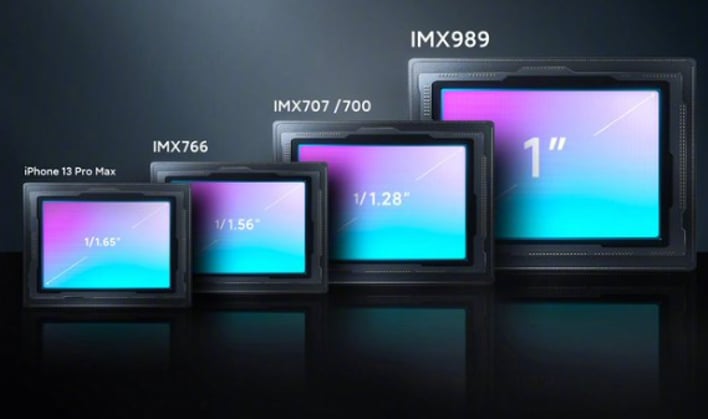Sony IMX980 Is World's First 1-Inch Smartphone Camera And It's Headed To This Handset

Samsung has been leading the way in terms of megapixels when it comes to smartphone cameras. The company currently sports a 108MP camera in its Galaxy S22 Ultra, which has seem a good deal of improvement since it was first launched in the S20 Ultra and Note 20 Ultra. Xiaomi also launched its Mi Note 10 the same year with a 108MP camera that used a different Samsung sensor. But now rival Sony is looking to go even further in terms of camera sensors, by developing its own 1-inch sensor specifically for a smartphone.
Sony's 1-inch sensor is slated to debut in Xiaomi's 125 Ultra early next week. While the sensor is larger than Samsung's, it will only come in at 50MP. Sony has used 1-inch sensors in its phones in the past, but they were all cropped versions of sensors used in its digital cameras. This will be the first that is dedicated to smartphones.
Currently Samsung's largest sensor is the ISOCELL GN2, which is a 1/1.12-inch sensor. Due to the sheer size of Sony's sensor, it should produce better images and video quality than Samsung's 108MP and upcoming 200MP sensors. But it should be noted that all of it will come down to image processing algorithms. This means that Samsung could still deliver better images than a phone utilizing Sony's 1-inch sensor if the algorithms are not ideal.
Whether or not Xiaomi is able to deliver better image quality with Sony's 1-inch sensor in its upcoming 125 Ultra is yet to be seen, but we don't have to wait long to find out. The 125 Ultra is set to be released alongside the Xiaomi 12S and the Xiaomi 12S Pro next Monday, July 4, 2022.
Do you think the Xiaomi 125 Ultra that will be utilizing Sony's latest 1-inch sensor will be able to outperform Samsung? Or do you think Samsung and its current image processing algorithms will hold strong? Let us know your thoughts in the comments.


